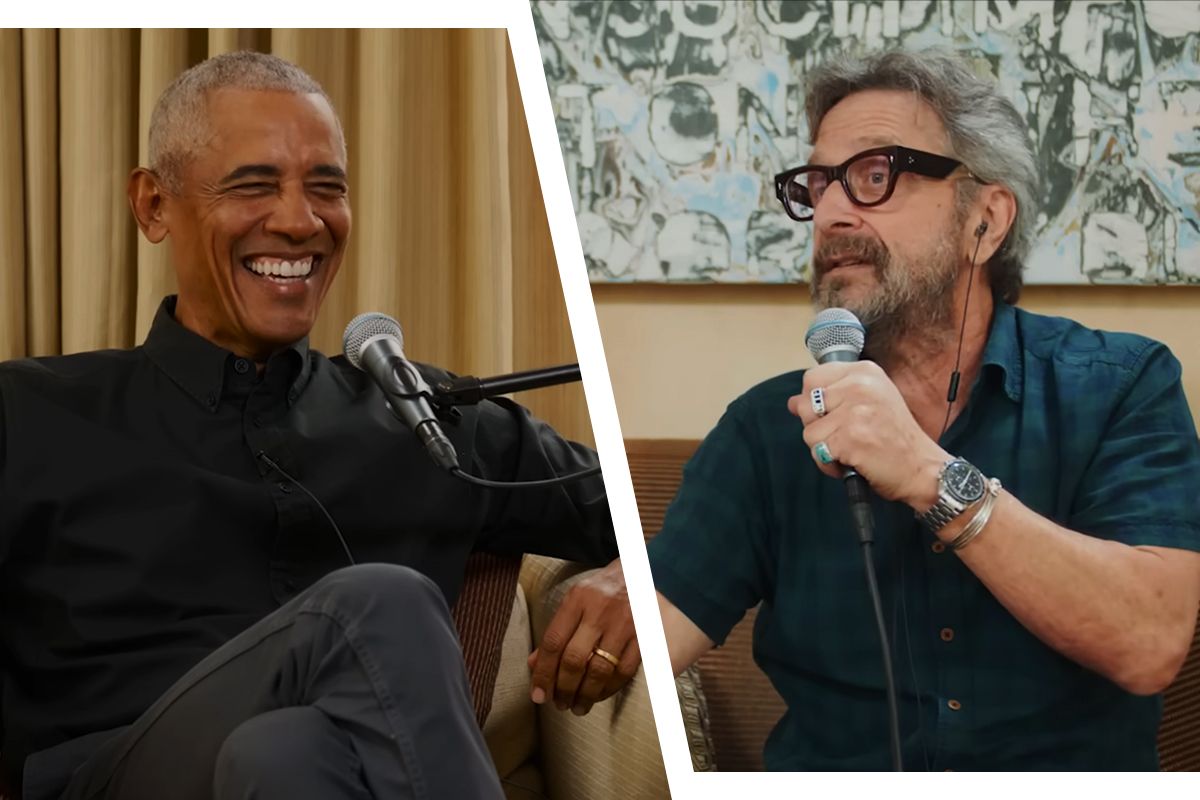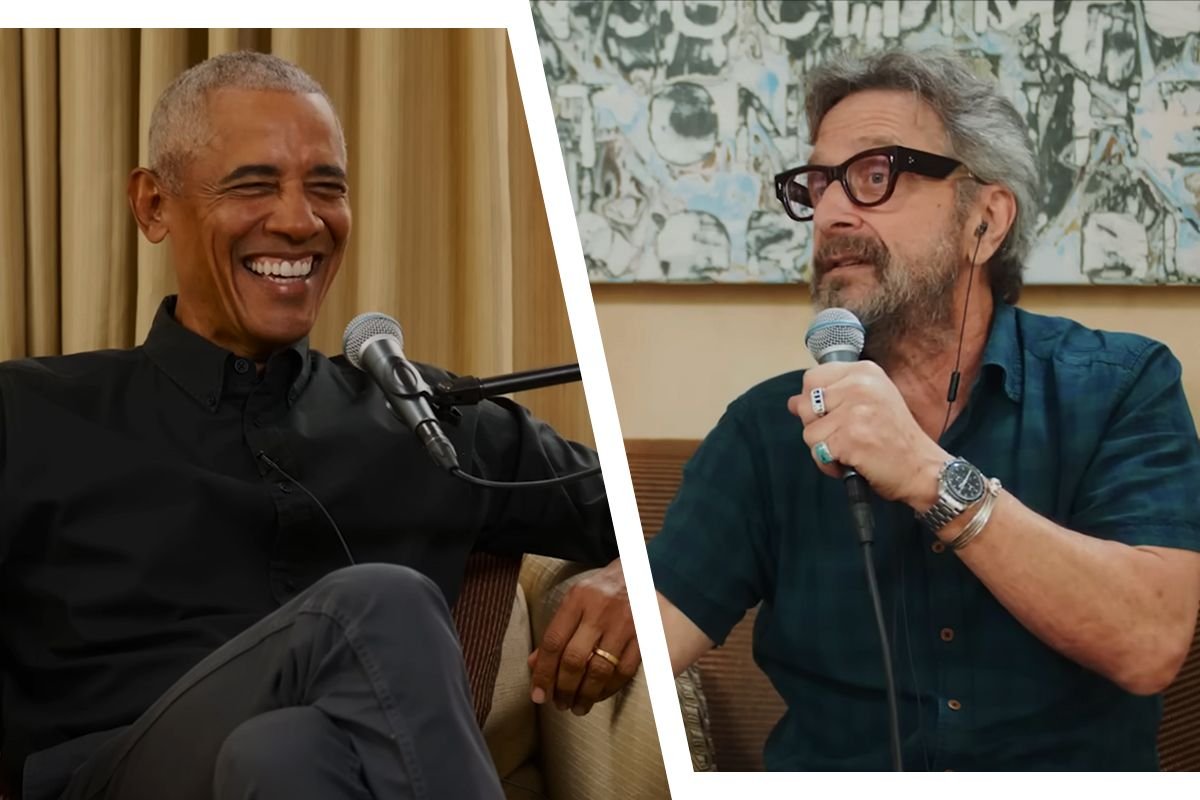
With all due respect to President Barack Obama, I would have gone in a different direction to close out WTF With Marc Maron. The choice to interview him makes sense, of course. Obama’s 2015 appearance is central to WTF’s mythology and to podcasting lore in general, so bringing him back provides a neat poetic echo to end the show. But Obama is no longer the most captivating guest, nor is he a particularly dynamic one for Maron. As he held court on feeling out of touch with contemporary digital culture and the sorry state of modern politics, I found myself wishing for a conversation more in tune with the fact that this would be Maron’s final interview. Instead, it felt like two Gen-X peers commiserating over how strange the world has become — which, to be fair, is kinda textbook Maron.
But closing on Obama was Maron’s call, and that’s the point. It’s rare these days to see a cultural institution end on its own terms. In an environment in which so many talents and shows don’t get the chance to leave the stage the way they want, and when control over speech seems more precarious than ever, WTF’s choosing to bow out simply because it felt right comes across as almost radical. There’s real power in Maron and producer Brendan McDonald simply deciding it’s time.
If you’re looking for a more emotionally satisfying finale, though, you’ll want the penultimate episode. Released on October 9, it’s just Maron talking — one of those long, wandering monologues that usually open each show — and it’s a genuine catharsis. You can hear him trying, as best he can, to make sense of what 16 years of doing WTF has meant. It’s pure Maron: searching, vulnerable, defensive in places, limited in others, but always honest. Interview shows are ultimately the story of the interviewer, and across nearly 1,700 episodes, WTF told the tale of a man coming into his own — learning, evolving, and practicing a kind of hard-won self-acceptance. “I was in search of myself,” Maron says at one point. Later, reflecting on past criticism of narcissism, he adds, “You’re hearing me find myself in the world in front of you. And I don’t think that’s selfish. I think that’s what we’re all trying to do.” Near the end, he thanks his audience directly: “A lot of your input changed my mind, the way I looked at things. I really took to heart what a lot of you have said to me, sometimes over emails, sometimes in person, and I really feel like you were a big part of my evolution and evolving wisdom and perception. It really helped me. I love you guys.”
WTF leaves behind a vast legacy. It should be remembered as a landmark interview program, a cornerstone of podcasting, and a defining influence on the digital culture we now live in now. It is a magnificent historical archive of conversations with comedians, directors, actors, and artists across generations, plus, of course, the occasional president. I’ve always thought it a little unfair to lump Maron in with the whole “white-guy comedian with a podcast” trope, even if, yes, he was among its few originators and, yes, he is literally a white-guy comedian with a podcast. WTF was something more, though: a blueprint for the longform interview show as a space for emotional and intellectual excavation. Above all, it modeled the podcast as a distillation of the person behind the mic, something increasingly rare in today’s video-first, algorithmically tuned media world overrun with people performing for the camera.
The end of WTF does not mark the end of Maron, of course. He’s still a successful touring comedian. He’s the subject of a documentary, Are We Good?, exploring the process of grieving his late partner, Lynn Shelton. He’s developing a feature film, which he may direct. He’s increasingly present as a working actor (from GLOW to To Leslie to The Order) and has cultivated a comforting screen presence. There will be more, but something essential has shifted. The steady weekly intimacy he has maintained with listeners around the world — that’s over. And in a sense, that’s part of the continual evolution. The story of WTF has been of a man learning to let some things go, moving toward gratitude, and trying to become a fuller person. Maybe that adds to why its closure feels so right. Even something this great, this sustaining, can turn into a crutch if you hold on too long.
Related


